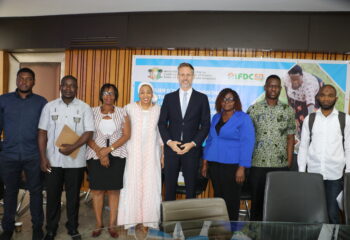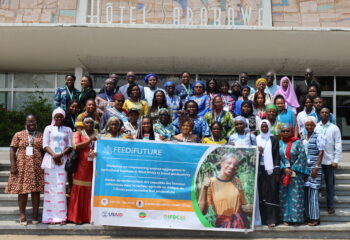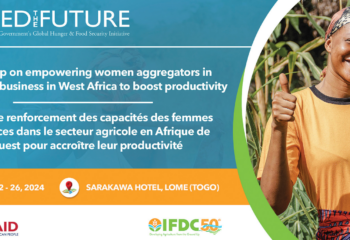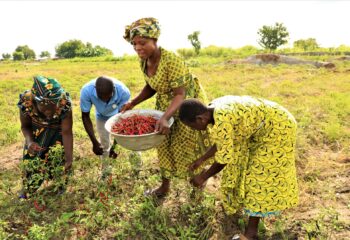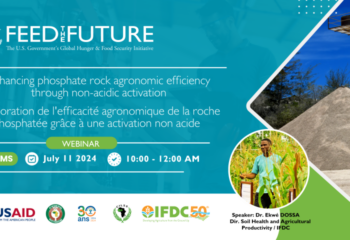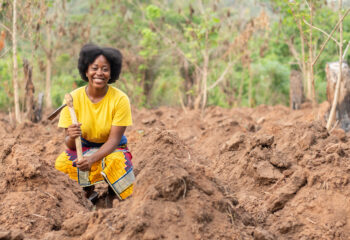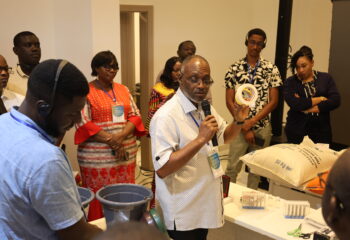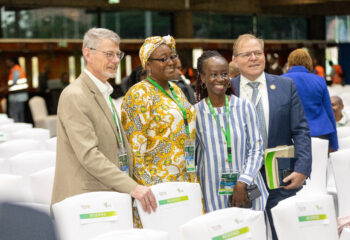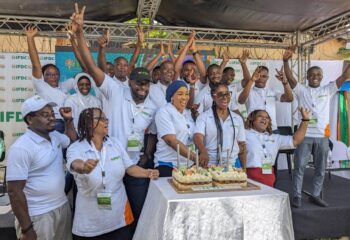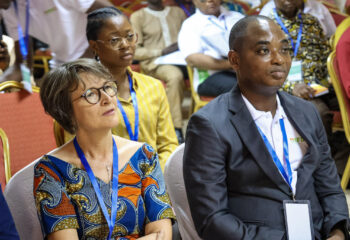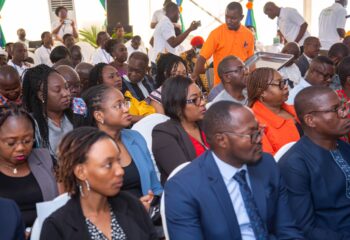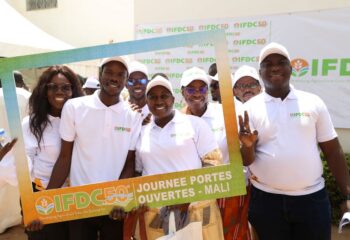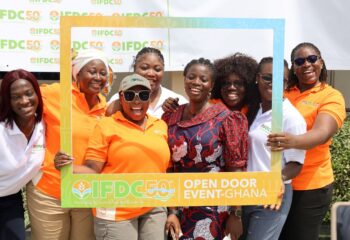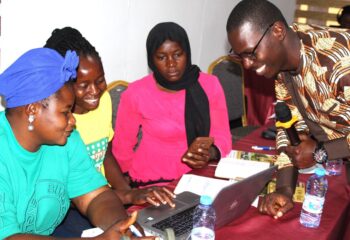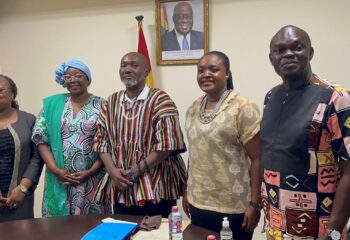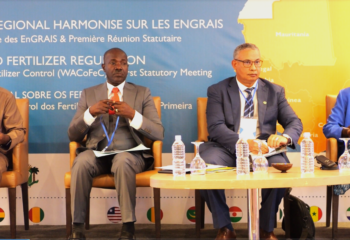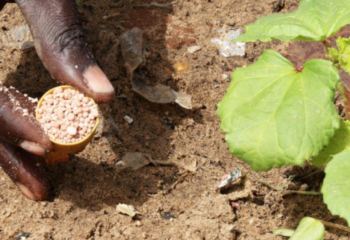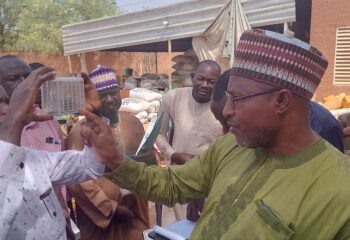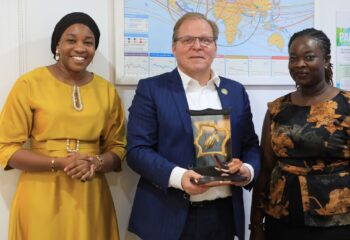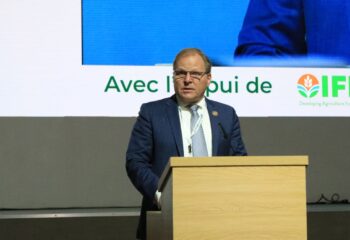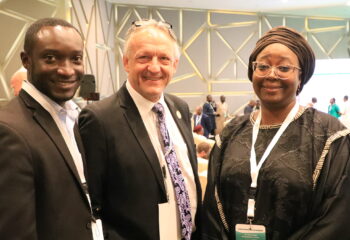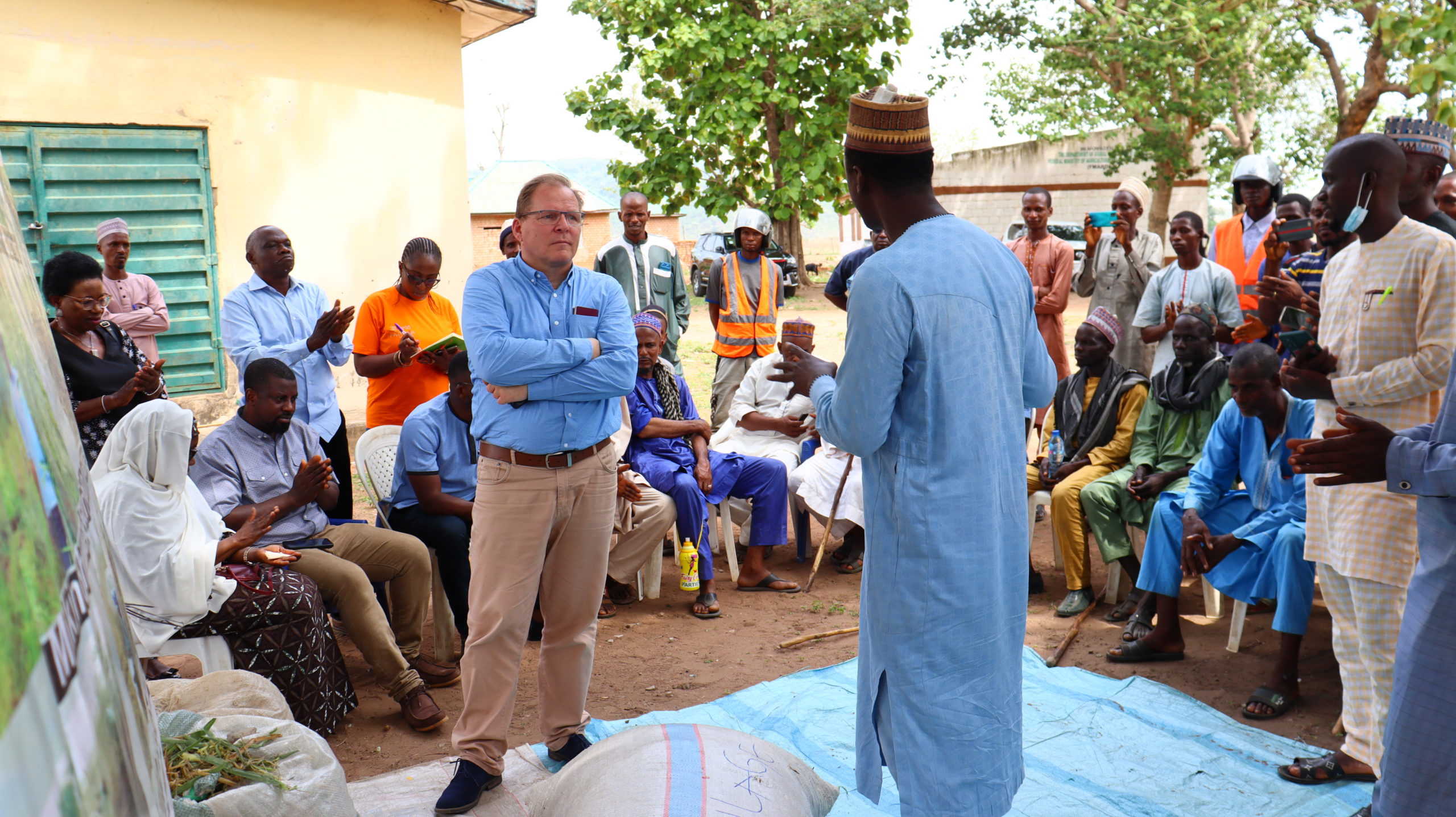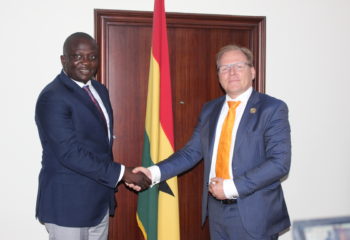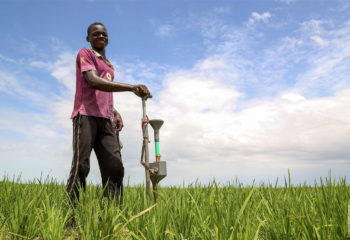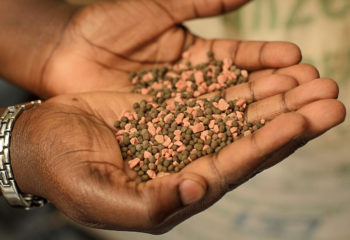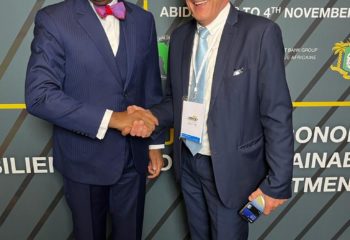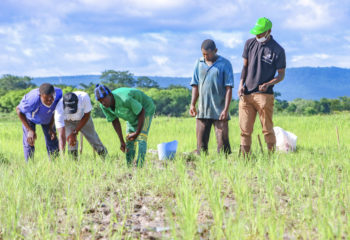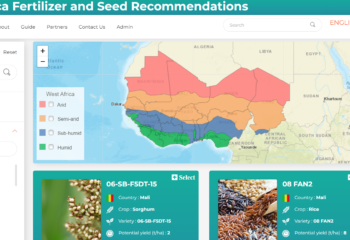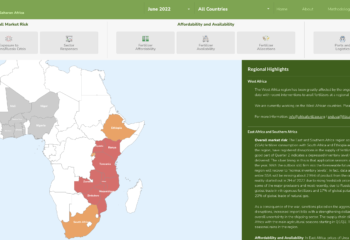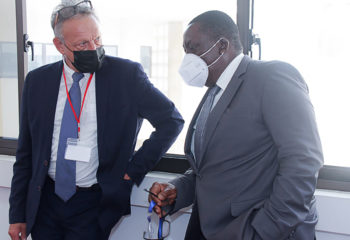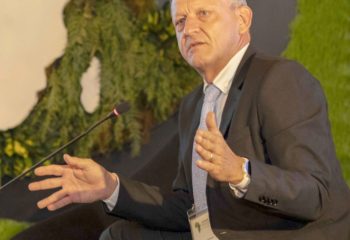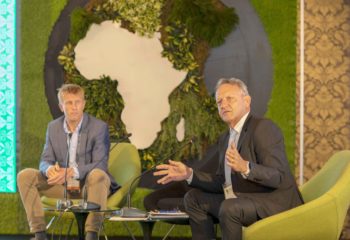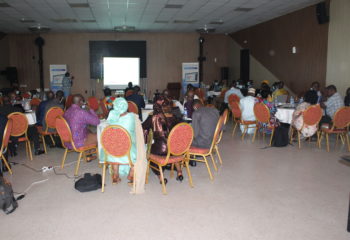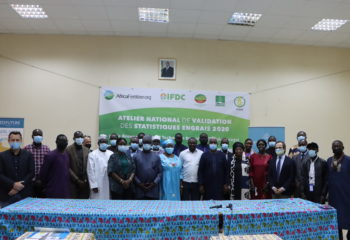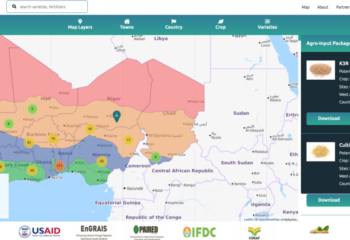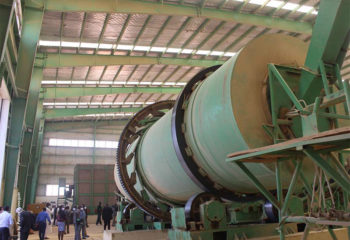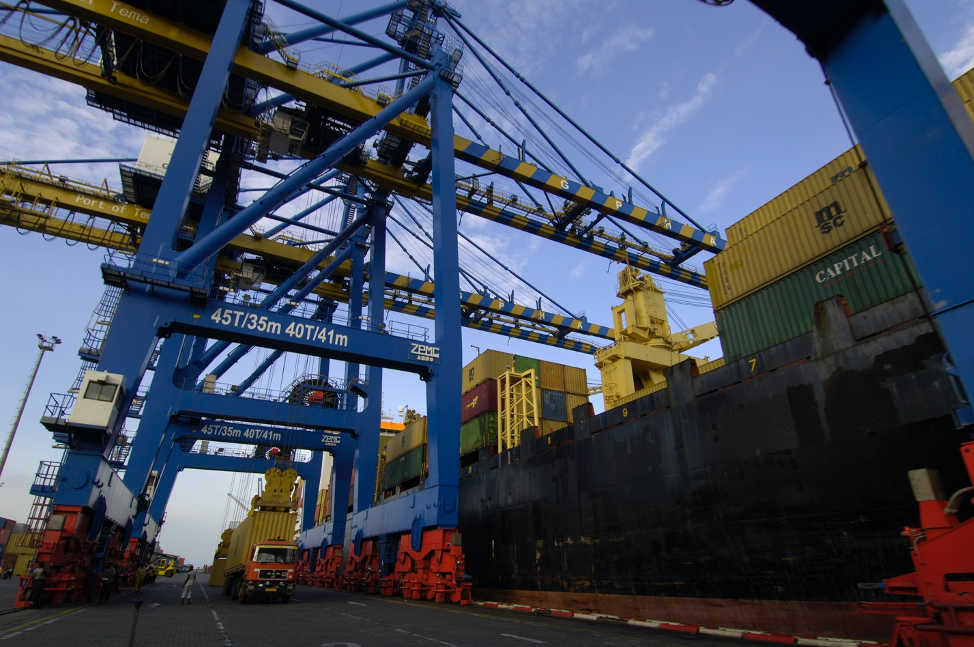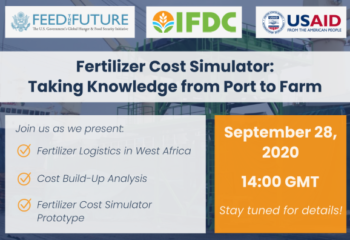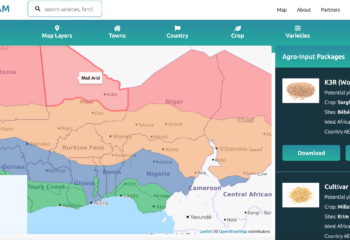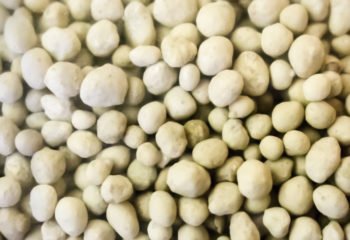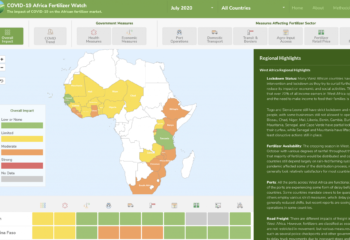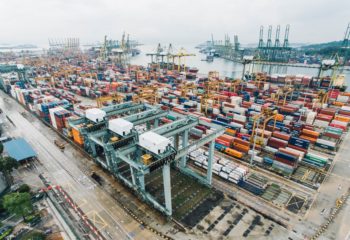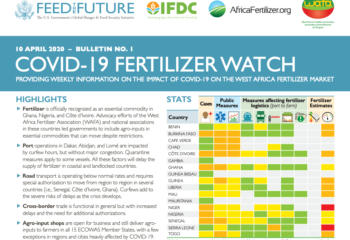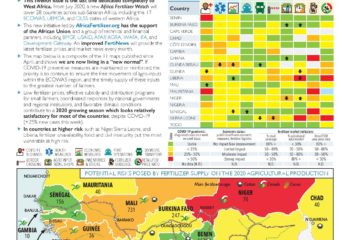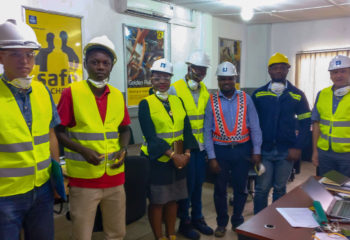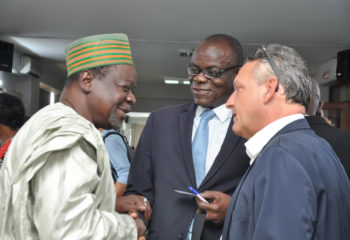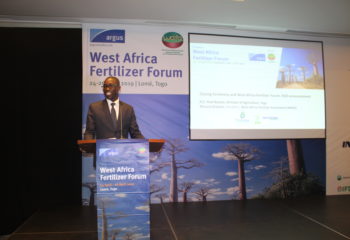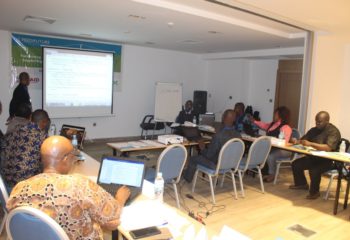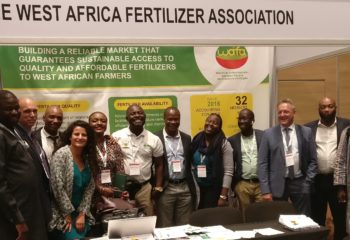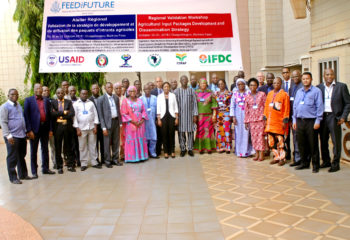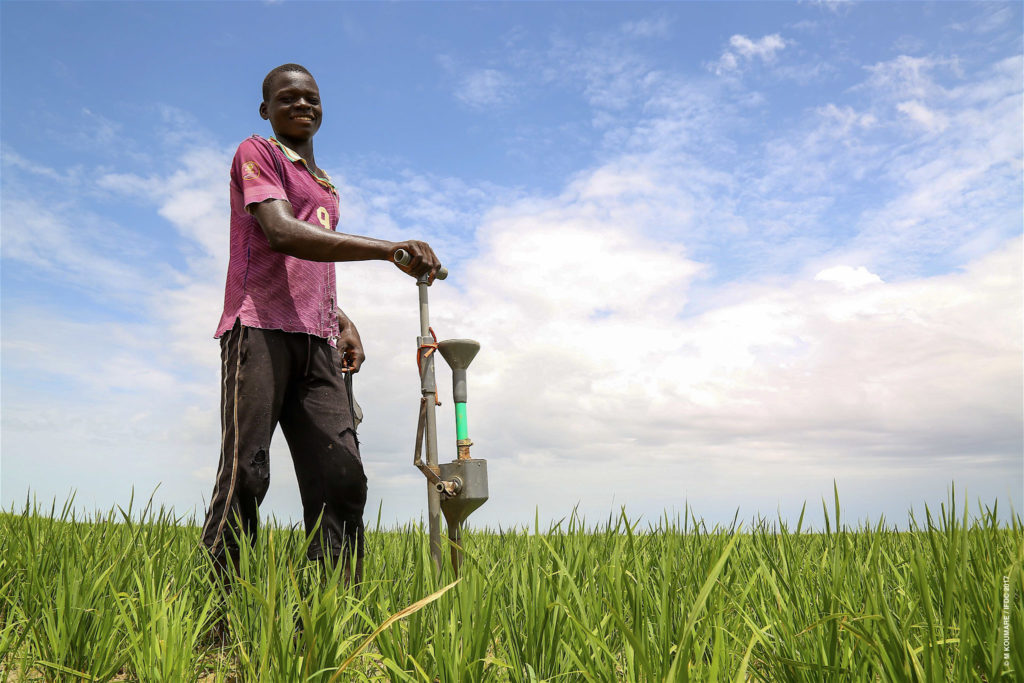
Feed the Future Enhancing Growth through Regional Agricultural Input Systems (EnGRAIS)* Project for West Africa aims to increase the availability and use of fertilizers that are appropriate and affordable for smallholder farmers in West Africa.
The Feed the Future EnGRAIS Project is one of the many assistance programs supported by the American people through the United States Agency for International Development (USAID). Project partners include the Economic Community of West African States (ECOWAS), West and Central African Council for Agricultural Research and Development (CORAF), West Africa Fertilizer Association (WAFA), and other relevant private sector organizations.
The project seeks to promote a competitive, inclusive, and private sector-led, regional fertilizer market.
The Feed the Future EnGRAIS project (2018-2026) works particularly with African-led institutions to develop well-functioning private sector-led fertilizer markets at regional and national levels through, among other things, support to private sector associations like WAFA. Such markets will ensure the supply of quality fertilizer at affordable prices so they can be accessed by farmers.
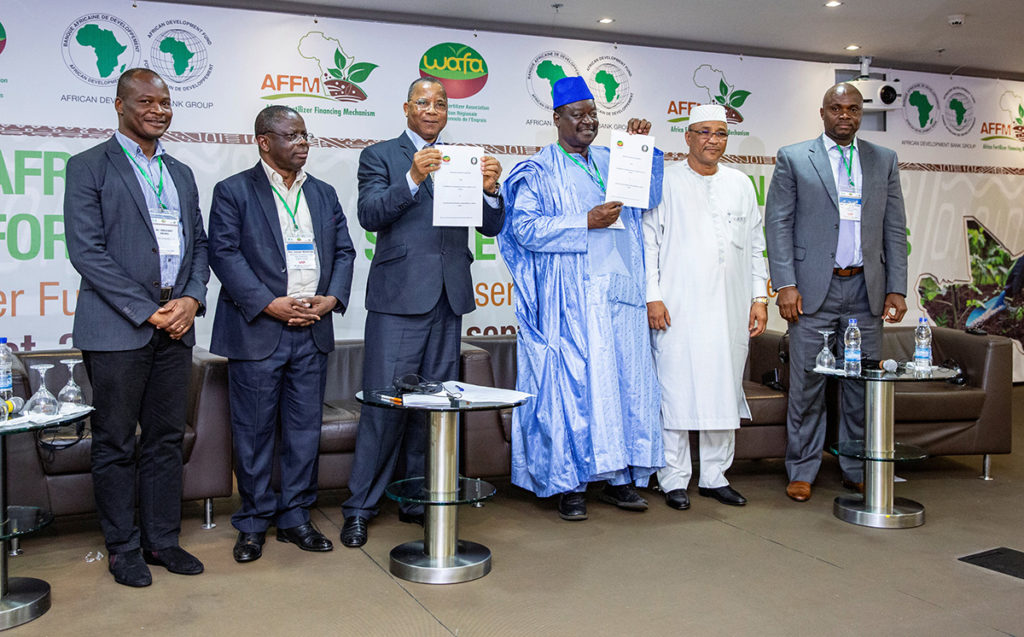
Goals Met
- Awarded an $8 million buy-in to implement the Feed the Future Senegal Dundel Suuf project and built the capacity of WAFA.
- Conducted a comprehensive study of Ghana’s fertilizer value chain.
- Published and updated the West Africa Fertilizer Business Information Map and the online Fertilizer and Seed Recommendations for West Africa Map (FeSeRWAM).
- More than 950 agro-input packages (AIPs) have been disseminated, covering 26 crops across various agroecologies, reaching more than 500,000 smallholders.
- The Dundël Suuf buy-in has mapped soil nutrient deficiencies in Senegal for the first time and developed 16 new balanced fertilizer formulations for greater nutrient use efficiency, soil health, and resilient production systems for smallholder farmers in Senegal.
Strengthening the West Africa Fertilizer Market
The project seeks to promote a competitive, inclusive, and private sector-led, regional fertilizer market. This will be strengthened through increasing the management capacity and sustainability of WAFA and other relevant regional private sector organizations/associations and industry actors collaborating through multi-stakeholder platforms to improve supply chain efficiency and improve fertilizer affordability.
Providing Input Recommendations and Packages
In cooperation with CORAF, the Feed the Future EnGRAIS Project will develop and provide regional and national decisionmakers with critical input packages, including fertilizer, seed, and good agricultural practice recommendations for key crops and agroecological zones (AEZs) across the sub-region and delivery strategies to ensure that these inputs are adopted and effective in improving agricultural productivity in the sub-region.
Facilitating Implementation of Fertilizer Regulations
The project will facilitate the development of an enabling policy environment that applies the ECOWAS regional fertilizer regulations and standards that Member States largely adopted under the Feed the Future EnGRAIS Project’s predecessor, the USAID West Africa Fertilizer Program (WAFP). The project will also promote the use of the Regional Fertilizer Subsidy Guide initially developed under WAFP to reform national-level fertilizer subsidy programs and to stimulate commercial activity and investment in the sector.
Mobilizing and Engaging Key Stakeholders at National and Sub-National Levels
The Feed the Future EnGRAIS Project includes a mechanism for USAID bilateral missions, if they choose, to buy into the project to enable it to directly support additional development and facilitation of the inputs sector in their respective countries. Such buy-ins will enable the Feed the Future EnGRAIS Project to mobilize commitment and harmonize engagement with key fertilizer stakeholders across West Africa through activities in individual countries. These activities may include development/strengthening of fertilizer business associations and agro-dealer networks, development and marketing/implementation of improved input recommendations and packages and application technologies, harmonization with and implementation of regional fertilizer regulations and reform of fertilizer subsidy programs to conform with regional guidance.
*The Feed the Future EnGRAIS project is the subject of a termination notice issued by the U.S. Department of State/USAID on February 26, 2025.
Impact
2023
- Received a three-year cost extension from USAID to continue project implementation and support.
- Launched the West African Committee for Fertilizer Control (WACoFeC) and successfully held the committee’s first statutory meeting.
- Supported ECOWAS in drafting and endorsing the Lomé Declaration on Fertilizer and Soil Health, providing a clear roadmap for its implementation.
2022
- Released a new Fertilizer Bulk Blending Guide for West Africa aiding in harmonizing blending practices with international standards to improve the quality of fertilizers and increase productivity across West Africa.
- Produced a West Africa Fertilizer Cost Simulator to guide decisions in choosing routes that will help reduce farmers’ fertilizer costs.
- Released a revised version of the Fertilizer and Seed Recommendations Map for West Africa and 600 complementary agro-input packages to address farmers’ specific agroecological needs and equip extension agents, agro-dealers, and local non-governmental organizations to support over 600,000 targeted farmers in using the tool and adopting the technology.
2021
- Provided policy advice to key decision-makers, flagging risks so that supply shocks can be better mitigated.
- Published the West Africa Fertilizer Business Information Guide to facilitate more relevant policy interventions and trade decisions.
- Expanded the online Fertilizer and Seed Recommendations for West Africa Map to offer 110 agricultural input packages, covering 15 crops in 11 countries.
- Advised ECOWAS, UEMOA, and several governments (including those in Burkina Faso, Ghana, and Niger) on how to respond to crises in the fertilizer sector and to improve their public interventions and subsidy programs.
- Helped improve the quality control of fertilizers across the region through assessment of 43 public and private laboratories.
2020
- In partnership with CORAF’s PAIRED project, developed the Fertilizer and Seed Recommendations Map for West Africa (FeSeRWAM) and its agricultural input packages to help farmers increase their productivity.
- In response to the COVID-19 pandemic, published 12 weekly bulletins of the West Africa Fertilizer Watch to ensure access to fertilizers by West African farmers before the start of the 2020 planting season.
- Assisted the West African Fertilizer Association (WAFA) to secure a $520 million line of credit from the ECOWAS Bank for Investment and Development for its 60-plus members.
- Supported several countries to fast-track implementation of the harmonized ECOWAS fertilizer quality control regulation, which has now been published in 14 Member State national gazettes.
2019
- Assisted WAFA in the planning and organization of the 2018 and 2019 West Africa Fertilizer Forums (WAFFs) and sponsored the participation of 39 private and public sector attendees from 14 West African countries each year. An updated version of the West African Fertilizer Business Information Map was distributed to WAFF participants at both forums.
- Developed and implementing a two-year joint work plan with WAFA to build its capacity and initiate activities to ensure WAFA becomes the representative and chief advocate of the fertilizer private sector in the region.
- The Fertilizer and Seed Recommendations for West Africa Map (FeSeRWAM) was updated with new fertilizer recommendations and formulas for specific AEZs and crops. It now comprises 81 recommendations for 13 crops across AEZs of nine countries in West Africa.
- Disseminated the Regional Fertilizer Subsidy Program Guidance, which was developed under the West Africa Fertilizer Program, and provided direct technical assistance to several countries, including Burkina Faso and Ghana, to help them reform their fertilizer subsidy programs.
- Conducted a comprehensive Ghana Fertilizer Value Chain Optimization Study, commissioned by the Government of Ghana and funded by OCP and EnGRAIS, which covered fertilizer cost buildups, formulations, use by region and crop, subsidy programs, recent developments, and a suggested way forward.
Quarterly Newsletters
2023
Quarter 1
2021
Quarter 4
English
Quarter 3
English
Francais
Associated Publications
Annual Reports
Monthly Project Highlights
Buy-In Information
Possible USAID Bilateral Buy-In Activities relating to Fertilizer/Productivity Development
Fertilizer Cost Build-Up and Process Maps in West Africa
Structure of Logistics Costs and Fertilizer Import Procedures Along Four Corridors in West Africa
Fertilizer Market-Related Publications
West African Fertilizer Business Information Map
West African Fertilizer Business Information Guide (FR)
West Africa Fertilizer Bulk Blending Guide
Contact Project Leader
Social Media


